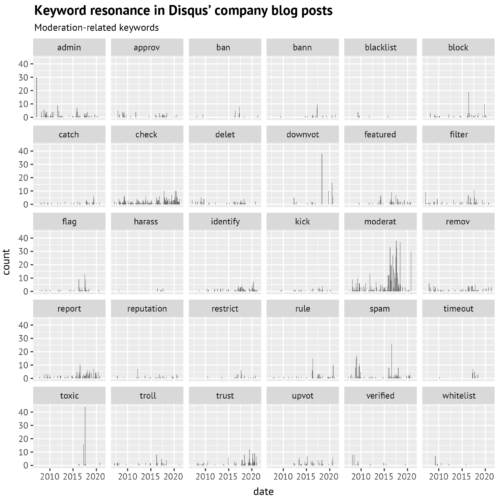A new open access article by Johannes Paßmann, Anne Helmond, and Robert Jansma in Internet Histories. We use data from the Internet Archive’s Wayback Machine to examine online commenting system Disqus’ shifting discourse about comment moderation and its increasing modes of platform interventionism. Crucially, we find that in the case of Disqus, the toxic is not only considered a threat to the healthy debate and public discourse but also to the monetizable comment space. That is, platform moderation and interventionism are also highly motivated by a platform’s economic incentives.
Abstract
This article examines how the commenting platform Disqus changed the way it speaks about commenting and moderation over time. To understand this evolving self-presentation, we used the Internet Archive Wayback Machine to analyse the company’s website and blog between 2007 and 2021. By combining interpretative close-reading approaches with computerised distant-reading procedures, we examined how Disqus tried to advance online discussion and dealt with moderation over time. Our findings show that in the mid-2000s, commenting systems were supposed to help filter and surface valuable contributions to public discourse, while ten years later their focus had shifted to the proclaimed goal of protecting public discourse from contamination with potentially harmful (“toxic”) communication. To achieve this, the company developed new tools and features to keep communities “healthy” and to facilitate and semi-automate active and interventive forms of moderation. This rise of platform interventionism was fostered by a turn towards semantics of urgency in the company’s language to legitimise its actions.
